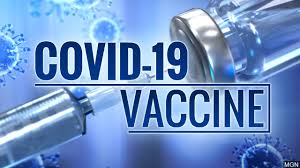There may be no reason not to keep using the AstraZeneca vaccine according to the World Health Organisation even as it says there is no link between blood clots and the vaccine. The WHO says countries should continue using AstraZeneca shots, as a growing number of countries in Europe and elsewhere have halted the use of the Oxford University-AstraZeneca coronavirus vaccine, after people reportedly developed blood clots in the days following vaccination, despite assurances from the WHO and the European Medical Agency, the European Union’s drug regulator.
It was a shock on Thursday when several European nations suspended the roll-out and distribution of the AstraZeneca COVID-19 vaccine. The reason for halting the vaccine was primarily due to reports of blood clots in some persons that had received the vaccination. At least 12 countries halted vaccination campaigns following reports of the potential adverse events despite a lack of formal evidence that the shot is unsafe.
On Thursday, Denmark, Norway, and Iceland all paused their AstraZeneca rollouts while Austria had already stopped using a specific batch while authorities probed a post-vaccine death caused by blood clots. Estonia, Latvia, Lithuania, and Luxembourg also suspended the use of the same batch. On Friday, Italy, Romania, and Thailand joined at least eight other European nations in suspending the injections, citing the potential adverse events, while they conduct an investigation.
Around five million Europeans had already received the AstraZeneca vaccine even as Nigeria had distributed close to three million doses to at least 28 states across the country. The AstraZeneca vaccine is the mainstay of the early phase of the COVAX global vaccine sharing scheme, which is led by the WHO and aims to distribute two billion doses in 2021 to ensure access for poorer countries. But a WHO spokeswoman, Margaret Harris, however, said there was no reason to halt the use of the vaccine. Harris noted on Friday it was an “excellent vaccine” and that no causal relationship had been established between it and the health problems reported. “It’s very important to understand that, yes, we should continue to be using the AstraZeneca vaccine,” she said, noting that the WHO’s global advisory committee on vaccine safety is reviewing the reports and would report on its findings.
“It is very important we are hearing safety signals because if we were not hearing about safety signals that would suggest there is not enough review and vigilance.” “AstraZeneca is an excellent vaccine, as are the other vaccines that are being used. Yes, we should continue using the AstraZeneca vaccine,” Harris said, adding that all safety concerns need to be investigated. According to the European Medical Agency investigating the reports of blood clots among those who had received the vaccine “There is no indication that vaccination has caused these conditions, which are not listed as side effects with this vaccine.
The vaccine’s benefits continue to outweigh its risks,” the agency said in a statement. In Italy, authorities paused the use of the vaccine as a precaution following the deaths of a navy officer and policeman who had both received shots. The policeman died due to a deep vein thrombosis that resulted in a brain hemorrhage. He fell ill within 24 hours of receiving the shot. A WHO Health expert advisory committee is looking at the development as suspended use of the vaccine in response to the reports of the formation of blood clots in some people who have received it.
The National Agency for Food and Drug Administration and Control, NAFDAC, had certified the vaccine safe fit human use. The Director-General of the Agency said the vaccine has no side effects. Adeyeye, who spoke in Abuja, said NAFDAC went through the application dossier of the vaccine before it was approved to be administered on Nigerians. “When we got the dossier or the application package of the vaccine, we went through it line by line, but before we got the application itself, we went through other assessments. “I am talking about their assessment report so that we are prepared and guided when we start our own and that was exactly what happened.
“We conclude based on quality, safety and efficacy because we have to depend on the report, this particular AstraZeneca vaccine, over 20,000 people were involved in phase three of the report,’’ she said. According to Adeyeye, the benefits and effectiveness of AstraZeneca vaccine outweigh the risk, as it has already been scrutinised. She said that the agency also believed in herbal medicine, but it must be backed with research before such could be approved. In a follow-up, the National Primary Health Care Development Agency, NPHCDA, also allayed fears over safety concerns of the vaccine. In a statement, the agency noted: “We are aware of precautionary concerns that have been raised regarding one specific batch of the AstraZeneca vaccine, namely ABV5300.
“We understand that investigations are being conducted to determine if the batch is in any way linked to an observed side effect. While we await the outcome of the investigations, it is important to clearly state that Nigeria did not receive any doses from the batch of vaccines that is at issue. “Vaccinations in Nigeria started earlier this month and we have not observed any similar adverse reactions. All side effects reported by those who have been administered the vaccine have been mild. We are satisfied that the clinical evidence indicates the Oxford-AstraZeneca vaccine to be safe and effective, “the agency noted.
Some European countries that suspended the use of the vaccine, have demanded a written statement from the European Medicines Agency (EMA) accounting for the jab’s safety. The EMA has stated that there was no indication the jab was causing the blood clots, adding that its benefits continue to outweigh its risks. Though the quality of AstraZeneca is reputedly good, some countries have asked for a delay.
But AstraZeneca said the drug’s safety had been studied extensively in clinical trials. In the UK, the Medicines and Healthcare products Regulatory Agency (MHRA) said there was no evidence the vaccine had caused problems, and people should still go and get vaccinated when asked to do so. Many countries have also said that there is no reason to halt the vaccination.
The AstraZeneca vaccine is made from a weakened version of a common cold virus (known as an adenovirus) from chimpanzees. It has been modified to look more like coronavirus – although it can’t cause illness. Once injected, it teaches the body’s immune system how to fight the real virus, should it need to. The WHO data shows that more than 268 million doses of Covid-19 vaccines from various developers have been administered worldwide and no deaths have been attributed to them
Source: . Vanguard News Nigeria

